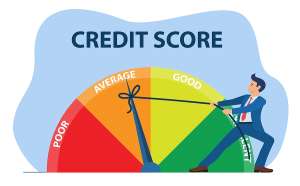Share This Article
Loans are financial tools that provide individuals and businesses with the means to access money for various purposes. They come with specific terms and conditions that borrowers should understand to make informed financial decisions.

What Is a Loan?
A loan is a sum of money borrowed from a lender, typically a financial institution like a bank, credit union, or online lender. Borrowers are expected to repay the loan amount, often with interest, over a predetermined period. Loans are used for a wide range of purposes, including buying a home, financing education, starting or expanding a business, or covering unexpected expenses.
Loan Terms and Their Meanings:
1. Principal: The principal is the initial amount borrowed, which must be repaid. It is the baseline amount before interest and other charges are added.
2. Interest Rate: The interest rate is the cost of borrowing money. It’s expressed as a percentage and determines the additional amount (interest) borrowers must pay on top of the principal.
3. Term: The term, or loan duration, is the period over which the loan is repaid. It can vary from months to decades, depending on the type of loan.
4. Amortization: Amortization refers to the process of repaying a loan through scheduled, fixed payments. These payments typically cover both the principal and interest.
5. Collateral: Collateral is an asset (e.g., a home, car, or valuable item) used to secure a loan. If the borrower defaults on the loan, the lender may seize the collateral.
6. Credit Score: A credit score is a numerical representation of a borrower’s creditworthiness. Lenders use it to assess the risk of lending to an individual. A higher credit score often leads to better loan terms.
7. Secured Loan: A secured loan is backed by collateral, reducing the lender’s risk. Mortgages and auto loans are common examples.
8. Unsecured Loan: An unsecured loan doesn’t require collateral. Lenders rely on the borrower’s creditworthiness to approve these loans. Credit cards and personal loans are typical examples.
9. Default: Default occurs when a borrower fails to meet the agreed-upon terms of the loan, including missing payments. Defaulting can have serious consequences, such as legal action and damage to the borrower’s credit.
10.Origination Fee: An origination fee is a one-time charge levied by the lender when the loan is initiated. It covers the cost of processing the loan application.
11.Co-signer: A co-signer is a person who agrees to repay the loan if the primary borrower fails to do so. Co-signers are often used to strengthen a borrower’s creditworthiness.
12.Prepayment Penalty: Some loans come with prepayment penalties, which impose fees for paying off the loan early. It’s essential to understand whether your loan has such penalties before proceeding.
Understanding these loan terms is crucial when considering a loan. Borrowers should carefully read the terms and conditions of any loan agreement and, if necessary, seek professional financial advice to make informed decisions about borrowing money. Apply for a quick loan https://dashboard.savingsbox.ng/loans

